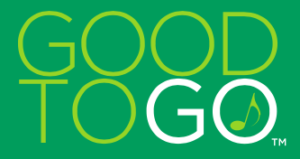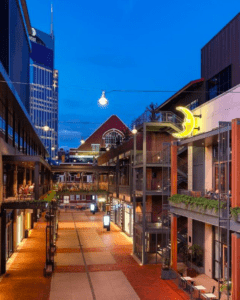Vaccines, Vacations and Vital PR
Published on November 18, 2021, at 12:38 p.m.
by Ashley Cunigan.
As the holiday season approaches and more people begin to travel, hotels across the country are seeing a shift in their post-pandemic operations. COVID-19’s effect on business and leisure travel has caused many hospitality and tourism leaders to rethink their public relations strategies. Even so, crisis management and visitor experience are both at the forefront for businesses wanting to succeed in maintaining positive customer relationships.
Still, the question remains: How are cities effectively communicating about vaccines and safety precautions for tourists to take safe vacations?
Heather Middleton, vice president of public relations for the Nashville Convention and Visitors Corp, believes that the hospitality and tourism industry operates best by communicating in phases.
“Cities have evolved a lot differently than the beach or the mountains. During the shutdown, our goal was all about how we support our members and the industry,” Middleton explained. “We wanted to keep them informed about what was happening and how they could best keep their employees safe. There was a time when that was at the forefront of everything we were doing.”

Named one of the top 15 cities in the United States, Nashville responded to the pandemic by ensuring the safety of tourists visiting hotels, attractions and local businesses. In addition to partnering with Vanderbilt Health and Ryman Hospitality, the Nashville Convention and Visitors Corp (CVC) began the Good2Go program, a public relations campaign focused on the implementation of health and safety guidelines. The education portion of the program and direct access to Vanderbilt infectious disease doctors differentiated Good2Go from other health organizations. For example, Good2Go offered a marketing toolkit and website with resources for the public.
“The Good2Go program was an initiative started by the [Nashville] CVC and a free program open for any business to sign up. Vanderbilt provided free sessions and businesses had to abide by certain rules and regulations,” Middleton said. “We provided them with a marketing toolkit, built a website and adhered to CDC guidelines. This was all so visitors and the local public knew who was taking precautions,” she further noted.

While businesses are beginning to open their doors again, travelers are advised to do their research before visiting any restaurants or attractions. Nashville welcomes visitors to come back and experience the city safely, but emphasizes taking precautions. Another campaign, While You’ve Been Away, We’ve Been Creating, aims to welcome tourists to see what’s new when they feel comfortable traveling again.
Since the vaccine rollout, over 100 restaurants and eight hotels have opened in Music City. However, hospitality and tourism leaders are still struggling to find employees to keep these businesses open, Middleton noted. “Hotels, though open seven days a week, are still struggling to find a full staff. Some attractions are still understaffed, too, and haven’t been able to return back to their seven days a week pre-pandemic schedules,” she further explained.
Similar to the Nashville community, Tuscaloosa, Alabama, also shifted its communication strategies to protect the health and safety of locals and visitors. Jim Page, president and CEO of the Chamber of Commerce of West Alabama, shared that the “community has weathered the storm well. We’ve supported our restaurants to keep businesses afloat during this new normal.”
While partnering with the city of Tuscaloosa and Community Foundation of West Alabama, the chamber promoted a campaign called Support Small Tuscaloosa to inform the public. “Our organization at the chamber worked hard from a public relations and marketing standpoint to be more intentional now than ever while helping keep local businesses alive. We helped those that didn’t allow in-person dining with delivery efforts and reminded people to support local,” Page said.
To disseminate clear and timely information, Page and his team work with the chief communication officer at Druid City Hospital to promote vaccine clinics and spread medical facts to the community. “We tried to communicate information with the masses on a daily basis. We conducted several media interviews, filmed commercials with WVUA-23 and reacted quickly on social media,” Page noted.
Moving forward, Page expressed that “we hope people will work to improve the quality of life in our community. We hope they have a renewed sense to be intentional about where and how they spend their money.” COVID-19 caused businesses to have a financial burden, and the small business relief fund provides small grants for local business owners to receive federal money to offset costs.
“We’ve seen a huge change in the Tuscaloosa community with restaurants, venues and economic development. We had a great run because of the great activity at the university and help from these funds,” Page said.
Both Nashville and Tuscaloosa face new challenges to effectively communicate with the local public and traveling vacationers. As these cities adapt to a “new normal,” public relations has become a vital effort for hospitality and tourism industry leaders across the nation.




